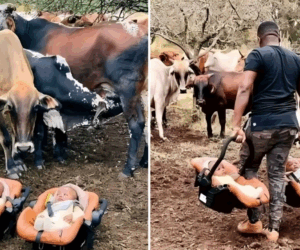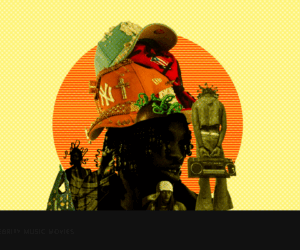
Every day, thousands of Nigerians juggle side hustles and full-time responsibilities, hoping the money adds up. But behind many successful dreams lies a harsh reality: familial expectations, pressure to support relatives, and unending financial demands.
A viral conversation on X (formerly Twitter), sparked by finance coach Tosin Olaseinde’s post, pulled back the curtain on the weight Nigerians carry when personal ambition collides with family responsibility.
They shared unfiltered, gut-wrenching stories ranging from missed opportunities to outright betrayal that reveal how deeply money influences family life.
As you read, you’d realise this isn’t just about financial illiteracy or selfish relatives. It’s a mix of cultural practices, governance failures, social pressures, and emotional traps that make financial stability elusive for millions.
READ ALSO: Top 7 investment mistakes young Nigerians are still making in 2025
The Weight of Black Tax
All these threads point back to one silent reality: the black tax. It’s the unspoken expectation that your success belongs to everyone around you. Nobody in the conversation was against helping the family. What they resented was the imbalance, the endless cycle where giving is demanded, not appreciated, and where the giver’s own growth is stunted.
It’s a cultural bond, yes. But it can also be a financial shackle. From the moment you start earning, relatives line up with requests. School fees here, rent support there, and a “small contribution” for a cousin’s business idea.
Imagine a civil servant coughing out 100k back in 2005 to support his Brother who had just finished his apprenticeship. It was supposed to be a loan, to be paid back.
Here we are.
Death threats.
Kids out of school.
Hunger.
Thank The Lord We Pulled Through. https://t.co/6PRB4zZl35— The Ag-Contractor | Farmily Field Farms (@UgoAgro_) September 28, 2025
My dad resigned from his job in 1995 with the hope of setting up a business with his 350k settlement.
The man he was to partner with duped him & ran away with the entire money to Cote D’Ivoire & then we entered into real deep poverty – the kind of poverty that scares the poor.… https://t.co/zvDGTXanIx— DON “Tobechukwu” Ade 👑 (@Row_Haastrup) September 28, 2025
One X user shared how her father prioritised giving to friends and relatives instead of investing in his own children.
My Dad thinks helping people was setting the future. He was doing so well and he prioritize helping than investing (siblings,relative, neighbors, co workers in need or not)until 2020 a setback happened and till this moment, no single person has offered help
Took him from 100 -0 https://t.co/ASCrBNakLX— Olawunmi Olaleye (@__mheerah) September 29, 2025
Others recalled how salaries vanished into endless handouts. In Nigerian parlance, you stop being an employee or entrepreneur and you become the family’s ATM.
South Africans call it the black tax. Nigerians know the weight too well. The Yoruba even say, ẹniyan l’aso (“people are your clothing.”) It’s a beautiful proverb, but in practice it sometimes translates to financial suffocation.
READ ALSO: How to build wealth while sending black tax to your family.
Faith, Guilt, and the Heavy Hand of Religion
Religion, unsurprisingly, featured heavily in the thread. For many, faith magnified financial strain.
Some told stories of parents leaving stable jobs to serve full-time in the church without backup plans, plunging their families into poverty.
Dem call my papa to ministry, as a whooping “Full time “ pastor 🤌😪 https://t.co/JDdjAaGlGw
— Fairy_lee (@Fairy_leedia) September 29, 2025
Others spoke of doctrines that discouraged certain trades.
My grandma stop selling alcohol when/because she became born again (Baptist). https://t.co/twlLYTH4EO
— Valore (@PapiValore) September 28, 2025
One story stood out: a father refused to sell certain goods because his church discouraged them. His conviction may have been noble, but the ripple effect was hunger and lost opportunity for his children.
Imagine being a talented fashion influencer in a denomination that frowns upon make-up or jewellery. Your faith collides with your only viable source of income.
My father built a house 3 years after secondary school. He was extremely wealthy from jewelries business (could be in 100 of millions by today's standards).
He got born again and joined Deeper Life and quit the business.
Like 20 years after that decision he'd be working with https://t.co/6oDHkyP12o— joshua art thou (@joshkenchuks) September 27, 2025
The Bible itself is often misapplied in these settings. Verses about sacrifice and giving, when twisted, can guilt followers into ruin. What should be a source of strength sometimes turns into manipulation, trapping hustlers between devotion and financial survival.








